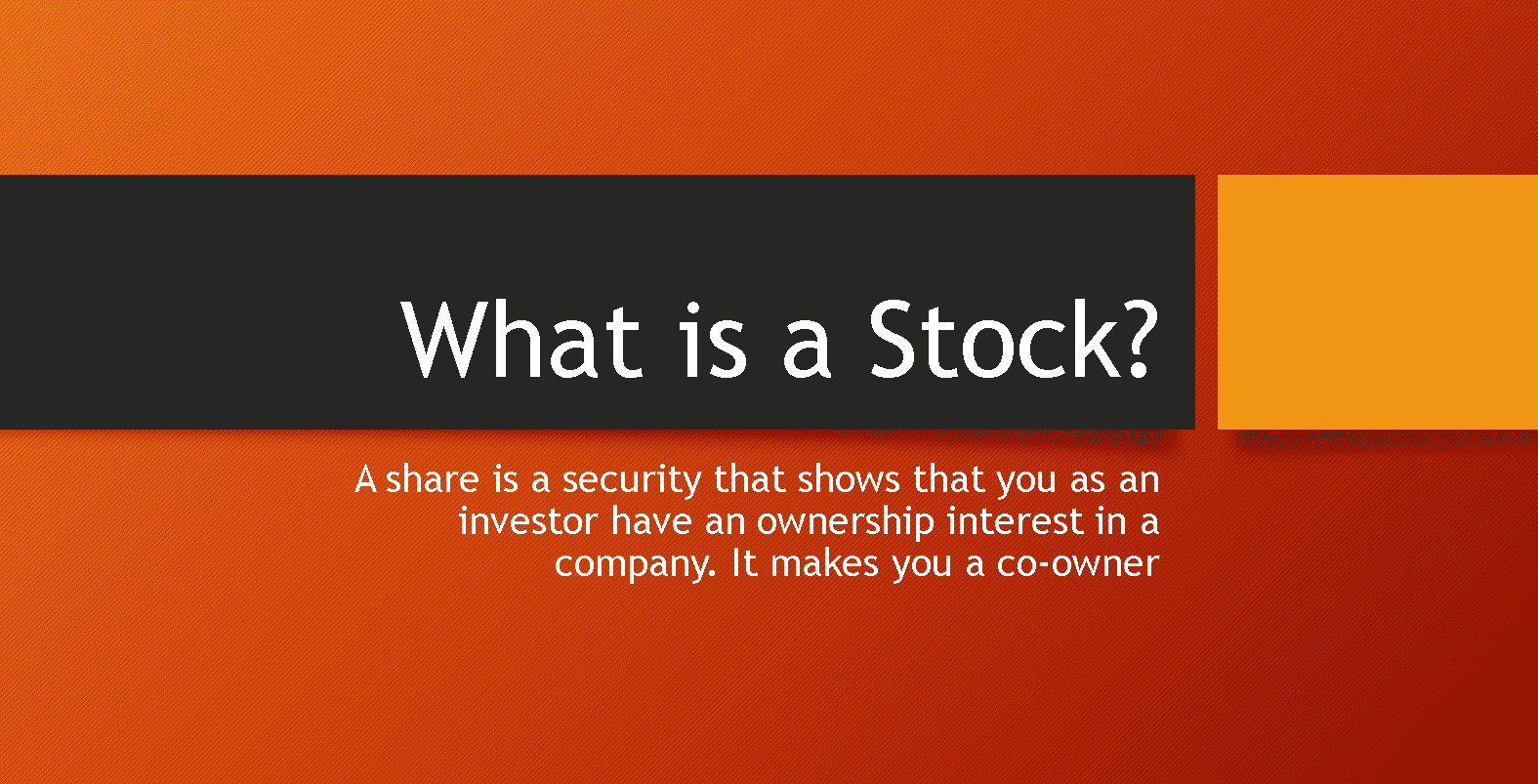What is a stock?
A stock is defined as: A share is a security that shows that you as an investor have an ownership interest in a company. It makes you a co-owner and gives you the right to share in the company’s profits and any dividends. Here you can read more about how it is connected.
When you buy a share, you are in principle buying a small share in the company that issued the share. For example, if the company starts with a capital consisting of 1000 shares with a value of 1,000 each, the company’s share capital is 1,000,000. If you own one share, this corresponds to you owning 1 / 1000th of the company.
If you didn’t read the first article about investing for beginners, then click here
What is the market value of a company?
The market value of the company’s shares is determined on the basis of the price of the shares multiplied by the number of shares. This means that if the price of one share is traded at USD 1,100 on the stock exchange, the company’s market value is USD 1,100,000 if 1,000 shares have been issued. The large gain on shares lies in the share price development. If you buy a share for USD 1,000 and can sell it for USD 1,100, you have earned USD 100 per share during the period in which the share has been owned (before tax).
The price of stocks can fluctuate a lot as there are many factors that can affect it.
The price of shares can fluctuate a lot, as there are many factors that can affect it:
- Company results: What do the accounts say?
- The expectations for the company’s future earnings
- The general economic development: Is there progress for the company’s industry?
- Developments in general factors such as growth and interest rates as well as investors’ willingness to take risks
What affects you as a shareholder?
Even if you have one or more shares in a listed company, you have no influence on the day-to-day operations. But you have one vote per. share to choose who will sit on the board.
If the company in which you have shares goes bankrupt, the shareholders are among the last to get their money back, so this is one of the major risk factors when investing in shares. It is therefore important to spread its investments over several stocks so as not to lose all the wealth. In an investment fund, the funds spread the wealth across many companies – sometimes as many as 200 companies – to reduce risk.
The board of directors of a company decides how it will dispose of any profits. Part of the profit will often remain in the company, while the rest can benefit the shareholders, either by distributing dividends, issuing free shares or repurchasing the company’s shares.
Realized versus unrealized gain
When a stock is traded on a stock exchange, the price changes continuously. If the price of your stock rises, you will make money when you sell it. This is called a realized gain. If you keep the stock and expect it to rise further, you have an unrealized gain.
Your content goes here. Edit or remove this text inline or in the module Content settings. You can also style every aspect of this content in the module Design settings and even apply custom CSS to this text in the module Advanced settings.
The price of a share.
The part of the company’s profits that is paid out to the shareholders once or more a year. This is also known as a dividend payment
The share capital is listed on a stock exchange, which facilitates the trading and pricing of a company’s shares. In the media when a company get listed it is usually referred to as an Initial Public Offering or IPO
Invest in funds or stocks by making regular monthly contributions. Acquiring new stocks at different prices i.e. buy more units when the unit price is low and buy fewer when the unit price goes up.
